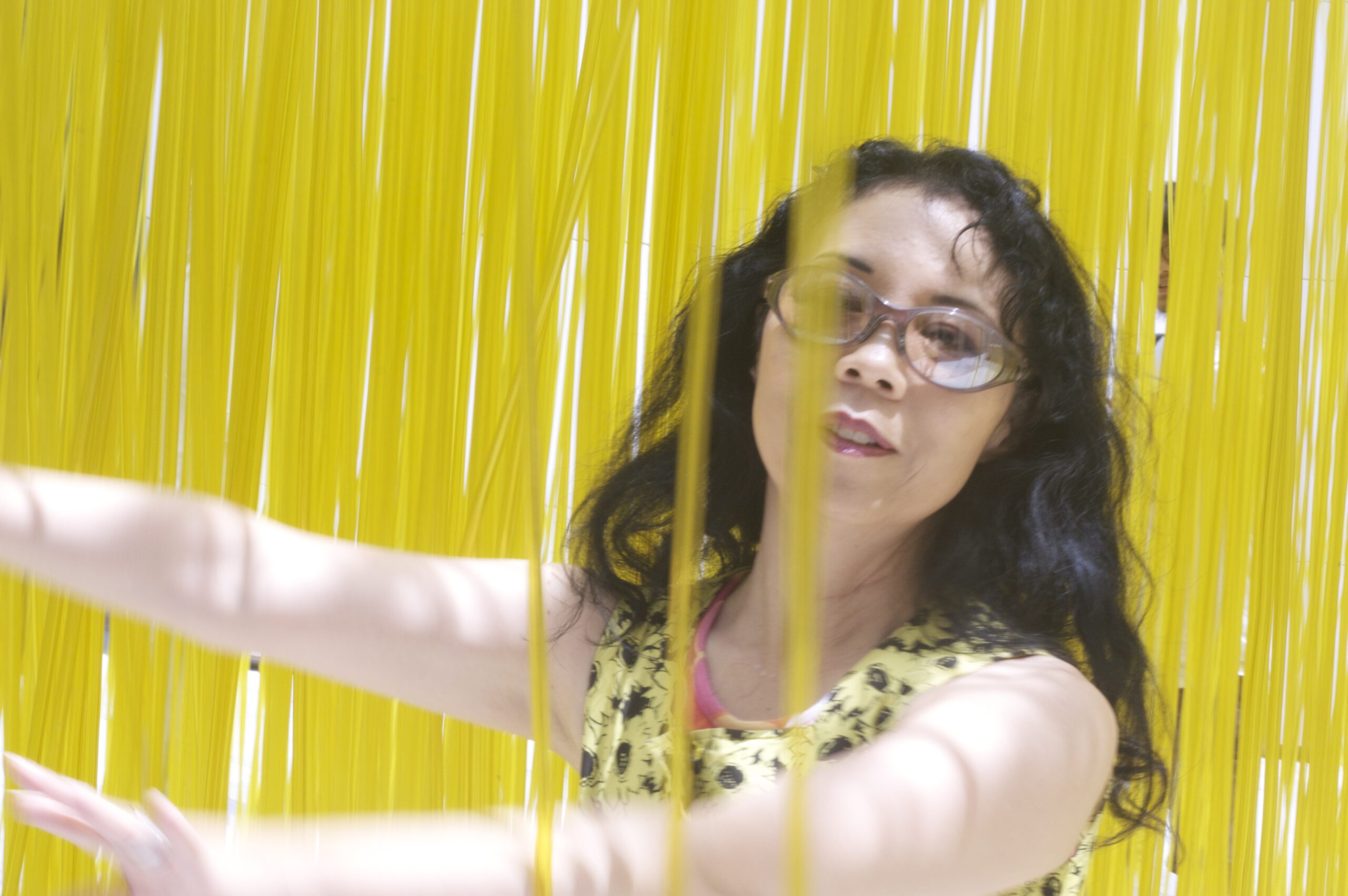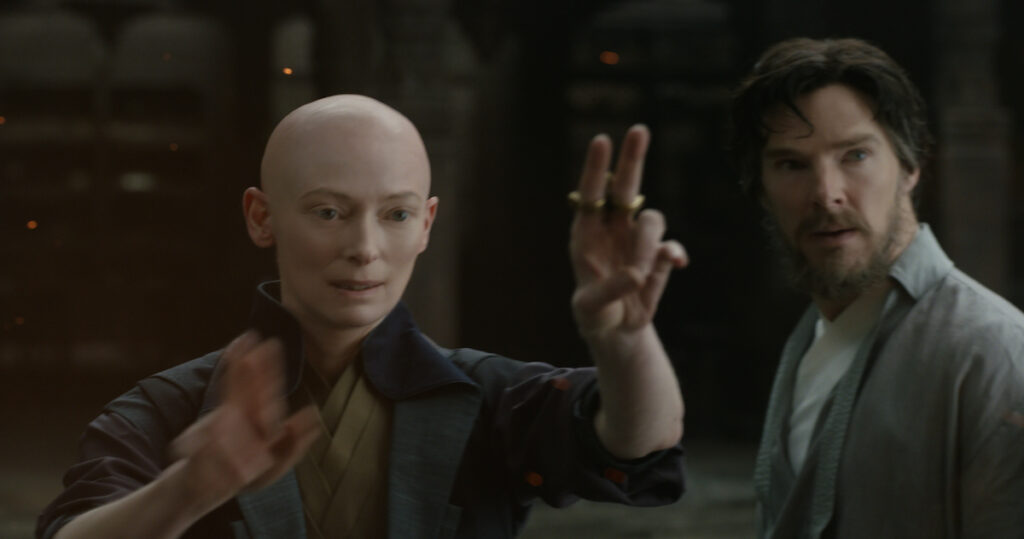After working at an Internet company that was labeled a “moral pygmy” by Democrat Tom Lantos and, during a time of bi-partisan agreement, compared to companies cooperating with Nazi Germany by Republican Chris Smith, I know a thing or two about important conversations: Get them in writing.
Luckily for us, that’s exactly what Tilda Swinton did when she reached out to Margaret Cho. If she had not, then their conversation about Swinton’s role in “Doctor Strange” as The Ancient One would have been a she-said, she-said debate that would have swirled around Margaret Cho’s claim that Swinton made her feel like a “house Asian.”
While Cho portrayed the exchange as a “long discussion” on Bobby Lee’s Tiger Belly podcast, it merely consists of five emails. Swinton initiated and asked to keep the conversation private. Cho replied and agreed.
As a result of the December 14, 2016 posting (Episode 71) of “Margaret Cho and the Yellow Telephone,” Swinton’s PR team released the unedited transcripts of that conversation. The last email is from Cho and gives no indication that she felt like the “house Asian” because she simply replies, “Hey that’s great about OKJA!” Swinton mentioned the project after Cho commented, “I’d even suggest getting into producing content that would give Asian-American voices a platform? That’s really what is being asked for.”
Let’s drop this conversation into context.
Cho is Korean American and was born in San Francisco, which in 1970 was 13 percent Asian and is currently 33 percent Asian. Swinton was born in London, into an Anglo-Scots family. London as of 2011 was only 13 percent Asian or Asian British. She currently lives in Nairn, Scotland. The Asian population in Scotland is, as of 2011, the largest ethnic minority group at three percent.
Decades ago when I lived in England, I regretted that I had not applied to a university in Scotland. As one Scottish man commented, Scots will welcome minorities more warmly than they do an Englishman. There is prejudice between Scots and the English although the tour guide at Edinburgh Castle put it into perspective, saying that when the Scots weren’t fighting the English, they were fighting amongst themselves. I was well treated and quite happy during my two trips to Scotland and that was a stark contrast to the harassment I felt as a minority in Sheffield, South Yorkshire where I lived for a year or London where I stayed for three months. When the British refer to Asians, they are more likely to be talking about the Pakistanis or Asian Indians than East Asians. The same holds true for parts of Africa it seems although I have not yet visited that continent. The prejudice I witnessed was not just against the Asians but also against people who came from the Celts, the Irish—white prejudice against other whites.
So even that three percent population would likely not be predominantly East Asian. The Ancient One from the Marvel Comics was Tibetan. Tibet is between China and India and borders Nepal and Bhutan. I’ve read various comments about the casting of The Ancient One. Some people have commented that it is likely that producers didn’t want to upset the Chinese over the sensitive issue of Tibet. Obviously that meant no one like prominent International Campaign for Tibet activist Richard Gere would be cast, but then a Nepalese, Indian or East Asian actor could have been cast.
The reasoning that the team behind Doctor Strange put forth is the same one that Swinton writes about in her email to Margaret Cho:
With The Ancient One (the ‘wise old Eastern geezer’ Fu Manchu type in the book), wanting to switch up the gender (another diversity department) and not wanting to engage with the old ‘Dragon Lady’ trope, they chose to write the character as being of (ancient) Celtic origin and offered that role to me. Presumably on Ancient grounds. I accepted happily, impressed that, for once, they aimed to disrupt the ‘wisdom must be male’ never-ending story—and, by the way, for once, wanting to feature a woman who’s a badass, over 26 and not simply bursting out of a bikini.’
Swinton did not make this choice to switch the race and gender of The Ancient One. Indeed, if we consider the ageism of Hollywood and the tendency for superhero movies to put women on display, Swinton’s casting is something of a triumph. As The Ancient One, she is quite good, yet it is the writers and producers who decided to duck the issue of race and racial stereotypes in the Marvel Cinematic Universe and instead of evolving the character into a more acceptable model, they whitewashed The Ancient One. By doing so, they fell into the white-people-can-do-it-better trap. Certainly one can argue that the Europeans were able to find the full potential of gunpowder, but to have all the Asian philosophical and spiritual forces improved by the power of whiteness is a reach, particularly in a world where the largest religions were founded in Asia.
Personally, I have taken the dragon lady trope and humorously reworked it into a character that makes me more memorable at comic conventions. This persona also serves as a kind warning to those who might be tempted to view me with the geisha stereotype in mind. Some people have commented that the choice of Asian man or Asian woman was a no-win situation for the “Doctor Strange” production team, either way there would have been criticism. We will never know because the decision was made not to try re-crafting The Ancient One into a less stereotypical portrayal.
I don’t fault Swinton for taking the role. Acting is a job; it’s a profession and Swinton is an exceptional actor. She also has always eschewed the starlet glamor route. When I saw her at Ebertfest, she took the stage without makeup. She seems honest, intelligent and genuine. When someone like that reaches out, crossing over the lines of race and nationality, shouldn’t one meet such an effort with grace and integrity? Otherwise, such open lines of dialogue will close down.
When I first heard the podcast, I thought that Swinton and Cho had a long discussion, one that lasted more than a handful of emails and that at the end, Swinton had asked for Cho to keep this private. As a reporter, I’ve had that happen. Sometimes, such requests have been the source of frustration. Instead I found that Swinton prefaced the conversation with the privacy request and Cho readily and clearly agreed and that Cho essentially ended the conversation and never indicated her feeling weird like the servant that was “following her with an umbrella.”
If we really want to resolve racism and prejudice in our neighborhoods or in the movies, we have to be willing to be honest and act with integrity in our conversations. Cho couldn’t even keep her privacy agreement with Swinton for a year and disclosed the conversation with a verbal stab in the back.
Nothing is a sure thing, but one doesn’t know if one doesn’t try. The “Doctor Strange” producers didn’t try to deal with the issue directly. I am glad to know that Swinton was willing to initiate a conversation with someone who had been vocal in #WhiteWashedOut conversation. It’s unfortunate that Swinton chose someone who decided to use her as a punchline for a joke. Hopefully, it will not have a chilling effect on future diversity conversations.












